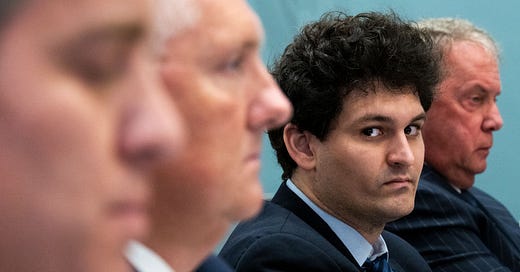Sequoia's Bad Year Just Got Much Worse As Its $210 Million Stake in FTX Looks Worthless
I've got the inside story on Sequoia's very bad year and FTX's pitch to investors
Sequoia Capital’s 2022 has been a waking nightmare.
What follows is a look at Sequoia’s performance so far this year based on interviews with insiders, rival investors, and FTX shareholders. I’ve got some exclusive information on FTX.
In 2021, the firm was riding high. Sequoia was one of the best performing investment firms for many of its limited partners — the endowments, pension funds, and other huge financial institutions who back venture capital firms.
So Sequoia decided that it was so smart that it should hold onto investors’ money indefinitely and maintain big public positions in its best portfolio companies.
As part of that new structure, called the Sequoia Capital Fund, the firm required limited partners who decided to roll their money over to the new structure to lock up their cash with Sequoia for two years.
Then, Sequoia’s public holdings — companies like DoorDash, Airbnb, Unity, Zoom, and Snowflake — took a nose dive, as I was the first to report in June.
For some limited partners, for the latest fiscal year, Sequoia is among the very worst managers over the past 12 months. And unlike a public hedge fund where investors can skedaddle when times get tough, they’re stuck with Sequoia.
Sequoia forced their investors to hold onto technology stocks during one of the worst markets ever.
Sequoia’s year got much, much worse this week when it it turned out that FTX — a giant crypto exchange valued at $32 billion — was apparently imploding.
FTX’s CEO Sam Bankman-Fried announced Tuesday on Twitter that the foreign arm of the company, FTX.com, was selling in a fire sale to arch rival Binance.
Now Binance doesn’t even seem to want to pick up the pieces of FTX’s wreckage.

FTX is split up between FTX.com and FTX.us, which have been pitched to investors as separate businesses. FTX.com operates outside the United States and is the company that was valued at $32 billion and was supposed to sell to Binance.
FTX.us, which operates in the U.S., was valued at $8 billion. The two companies have many overlapping investors, including Sequoia which invested in both entities.
CoinDesk reported on Nov. 2 that Bankman-Fried was shoring up Alameda Research with FTX’s made-up currency.
In the past couple of days investors, including Sequoia, began learning about FTX’s liquidity shortfalls, according to a source.





